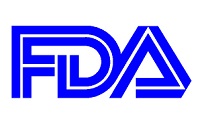While much of the news in recent months on warnings issued by the U.S. Food and Drug Administration (FDA) centered on alerts issued to Indian pharmaceutical manufacturers, active pharmaceutical ingredient (API) and drug manufacturers in China have also received their own set of alerts under the FDA's Form 483 regime, according to a report by the Regulatory Affairs Professionals Society (RAPS).
The society used the U.S. Freedom of Information Act and said 8 FDA Form 483 reports were issued for Chinese drug manufacturers. The report said 41 pharmaceutical manufacturing sites in China and 5 in Hong Kong are currently included on the agency's import alert list and are banned from shipping drugs to the United States, compared to the 42 sites listed as banned in India.
 The report said some of the Indian warnings concerned specific drugs and not all were banned from the sites. The report also reconfirmed that China is a much harder case to crack because of its reluctance to grant visas to FDA inspectors and said the FDA in 2014 closed two offices in Shanghai and Guangzhou. Late last year the agency said, according to the report, that it had 17 employees assigned to the Beijing office, adding that six employees from the FDA's China office were set to begin inspections from January to March. Previously the FDA had two inspectors overseeing about 700 facilities in China.
The report said some of the Indian warnings concerned specific drugs and not all were banned from the sites. The report also reconfirmed that China is a much harder case to crack because of its reluctance to grant visas to FDA inspectors and said the FDA in 2014 closed two offices in Shanghai and Guangzhou. Late last year the agency said, according to the report, that it had 17 employees assigned to the Beijing office, adding that six employees from the FDA's China office were set to begin inspections from January to March. Previously the FDA had two inspectors overseeing about 700 facilities in China.
Concern over China's problems facilities and the fact that it is a main exporter of bulk drugs to American makers caused members of the U.S. Congress to call on the U.S. Government Accountability Office in December to determine if the FDA can "adequately monitor the manufacturers in India and China, which in the past have had a history of counterfeiting, adulteration, substandard manufacturing and data falsification."
In its report, RAPS found that in 2015 more than 80 Form 483s were issued to Chinese manufacturers after 132 inspections, 15 more than in 2014. The report said the FDA conducted 203 inspections at Indian facilities, compared to 114 in 2014.
Some of the findings of the FDA reports include data manipulation at several companies where computer files were altered or deleted, missing logbooks, contamination issues and other serious failures in good manufacturing practices.
- here's the report from RAPS